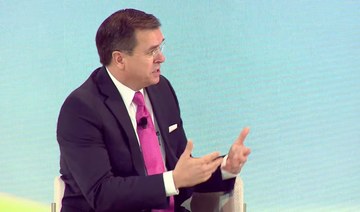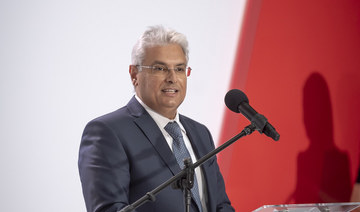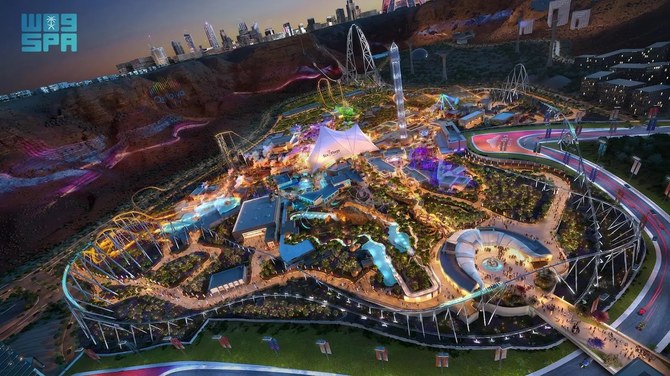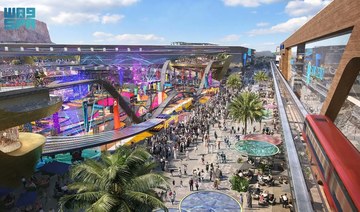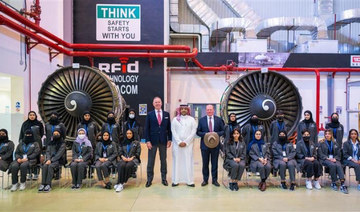RIYADH: Uber, the ride-hailing app, has come up with yet another feature called “Smart Itineraries” to make life easier for travelers to the region, according to its general manager for the UAE, Jordan and Lebanon.
In an exclusive interview with Arab News, Pia El Hachem said the newly launched feature allows riders to link their Uber profiles with their Google accounts and displays all upcoming travel plans.
“Riders can then reserve a ride to and from specific locations based on hotel and flight bookings, making the Uber app a one-stop-shop for all travel planning and bookings,” she added.
Smart Itineraries, the latest innovation in Uber’s product portfolio, is part of the Uber Travel Suite of offerings globally, with a range of features expected to launch in the region soon.
Smart Itineraries follows the expansion of Uber Reserve last year in Saudi Arabia.
Growth strategy
Commenting on Uber’s strategy to grow its market share in the UAE, Jordan, and Lebanon, El Hachem said: “Having a real presence on the ground in so many parts of the region allows us to connect cities, help businesses grow, and boost earning opportunities for millions of people across the region.”
She added: “We support the initiatives that matter (the) most to countries, bring diversified product innovation to address the needs of both riders and drivers.”
El Hachem went on to say that people are on the lookout for more convenience than ever before, including in the transport sector.

At the start of 2022, Uber’s data revealed that it had moved over 31 million riders around the MENA region, with 18,000 drivers in the UAE making a trip since the launch using the Uber app. (Supplied)
“As cities grow and technology improves, we want to provide more choices and a reliable experience for riders through the app in a way that would enable riders to leave their house and plan their journey end to end, all while minimizing our impact on the environment,” she explained.
Uber is investing in a wide range of offerings across different categories to serve different lifestyles and price points. This includes core offerings like Uber Select and Uber XL, as well as premium offerings like Uber Comfort, Uber Black, and tailored offerings like Uber Family and Uber Green.
According to El Hachem, Uber Green is helping the company to quickly progress toward its commitment to have one in four trips in the UAE emission-free by 2030.
“We are also working closely with the public sector on the right policies, legal framework and initiatives on charging infrastructure to make the transition to electric vehicles easier and more affordable for drivers,” she added.
Future priorities
Asked about Uber’s priorities over the next 12 months for the UAE and the Levant, El Hachem said that since the Middle East is very diverse, people’s preferences and each market’s infrastructure demand a different strategy.
“However, our efforts in the region over the next 12 months are focused on providing a smooth app experience, doubling down on sustainability, and supporting earners,” she explained.
El Hachem stressed that Uber wants to provide a reliable experience and more choices for riders to get around town, starting from the moment they land in the country.
“Staying mindful of the current socio-economic challenges, we also aim to create more economic opportunities for drivers through new product launches and expansions to support their earnings,” she said.
El Hachem added: “As per our global and local commitment, we’re also prioritizing making mobility more sustainable. We have Uber Green available in the UAE and Jordan to encourage riders to choose more sustainable ways.”
In 2022, Uber’s local and global sustainability teams and Uber’s CEO also participated in several events at COP27, which was held in Egypt, to discuss its road to electrification with key stakeholders and how they can address this challenge together.
“We are excited COP28 is also happening in the Middle East and North Africa region, and in the lead up to it, we are focusing our efforts on providing wider access to the sustainable offerings on the app, and supporting drivers with transitioning to EVs,” El Hachem said.
By all accounts, the UAE and Levant are strategically important markets for Uber’s growth. At the start of 2022, Uber’s data revealed that it had moved over 31 million riders around the MENA region, with 18,000 drivers in the UAE making a trip since the launch using the Uber app.
“As the region just witnessed one of the biggest sports tournaments (FIFA) in the world, we have also had a moment to reflect on the impact we’ve created across the region,” she said. “People from the UAE were among the top 10 to visit Qatar during this period.”
Innovation is key
El Hachem said that Uber is tapping into the potential of its tech to innovate and make travel more convenient and sustainable.
“Our priority is to help people get from point A to point B in the most efficient way possible,” she explained.
“We want to make the expected time of arrivals shorter and to help people plan better, we’ve introduced new features like Uber Reserve that allow people to schedule rides days in advance.”
She said this gives riders more certainty over their trips and creates higher earning opportunities for drivers. “It also comes with unique features such as upfront driver assignment, early arrival, and wait time, which makes all the difference to the travel experience,” El Hachem added.
Asked how Uber deals with competition in the region, she promptly replied that they believe competition is healthy since it pushes companies to evolve and provide better services.
“Competition also enables more choices: market diversity allows for more earnings opportunities for drivers and options for riders,” El Hachem said.
The main challenge, according to her, is actually people’s personal cars. “If we can get more people to use integrated transport systems, we will solve bigger challenges like (road) congestion and pollution — this is what we’re aiming for, globally and locally,” she concluded.




